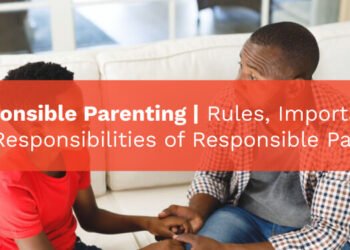An emeritus professor, Dr. Thomas Boyce of pediatrics and psychiatry at the University of California, has worked with children who get unimpressed by their surroundings – as well as others who are very sensitive. He began to compare two types of children to two different flowers over time: dandelions and orchids.
Approximately one in every five youngsters is more affected by their environment than their peers, making them stand out. They are the children who get overwhelmed, startled, and awkward in their replies. They are sensitive and yet passionate.
Orchid and Dandelion children
Author David Dobbs explains a revolutionary new genetic theory in The Atlantic magazine piece, claiming that “most of us have genes that make us as robust as dandelions able to take root and survive anyplace. A few of us, but, are more like the orchid: delicate and fickle, but capable of spectacular blossoming if given proper care in the greenhouse.”
Despite significant environmental concerns, many people are resilient. These “dandelions” can overcome obstacles and recover fast. Dandelions can grow in any situation.
Orchids are delicate plants that need a lot of attention to blossom. The “Orchid” kids aren’t that fortunate. They can degrade and suffer for the rest of their lives if they do not receive specialist treatment. Because of their empathetic natures, orchid children need responsive surroundings.
Orchid genes appear to run in a lot of introverted kids. These ‘orchid’ children are unique, with increased responsiveness to their surroundings. Orchid children are more observant of their surroundings than dandelion children. Dandelion children are relatively more easygoing.
Every child’s level of receptivity varies. Some will exhibit heightened sensory responses and emotional perception. When it comes to each sense, the possibilities get unlimited, and each child will have a continuum of receptivity.
How to recognize orchid children?
The concept of the orchid child was astounding among the narrow world of specialists. These specialists research genetics and child development. Some children are particularly vulnerable to the stressors of their environment.
Some points to recognize orchid children:
- Orchid children will complain about their sensitivity. Like, clothing tags itch, sounds being too loud, odors are too strong, or certain foods taste so awful that their tongue burns.
- Allergies and skin disorders are also more common in them.
- Because they get overloaded with sensory input and become overwhelmed, sometimes it’s challenging to get their attention.
- They appear to have a natural brightness as a result of their enhanced receptivity to information and stimulus.
- Adults may perceive these kids as emotional or reactive. But they express the vast world that lives within them.
Orchid children thrive when they have a daily routine, such as eating dinner in the same place every night with the same people. They enjoy having specific routines that the family adheres to week after week and month after month. Children with high sensitivity appear to enjoy such regularity in their lives.
Things To Remember While Taking Care Of Orchid Children
According to Boyce, who has spent over 40 years studying the human stress response, particularly in children, most youngsters are like dandelions, resilient, and capable of coping with stress and hardship. But, a small group of youngsters, which he refers to as “orchid children,” are more sensitive and reactive to their surroundings. It is more difficult for them to cope with stressful conditions.
According to Boyce, “The orchid child is a child who exhibits high sensitivity and receptivity to both terrible and excellent settings in which they find themselves”
A Child’s Physical And Emotional Behavior
The same types of response patterns are evident for both physical as well as emotional ailments. Physical ailments such as severe respiratory disease, pneumonia, asthma, and so on. Emotional, behavioral consequences, such as anxiety and sadness, as well as externalizing symptoms.
It’s believed to have the same susceptibility pattern in both types of children (Orchid and Dandelion). It works out not only for medical disorders but also for psychosocial and emotional issues. And the underlying biological processes are the same in both cases.
For instance, the two stress response mechanisms are the cortisol system and the fight-or-flight system. It is also known as the autonomic nervous system. It impacts the immune system, affecting the child’s ability to form immunity against viruses and germs.
Stress also has significant effects on the cardiovascular system. Thus they may predispose to hypertension, high blood pressure, or other forms of cardiovascular risk later in life.
Children’s Experiences Can Differ In The Same Household
Children within a family have different experiences. It depends on their birth order, gender, and, to some extent, genetic sequence.
Even though the same parents are raising children in the same house, there can be stark contrasts. There exists favoritism within a family between children of different birth orders and genders.
While most parents try to be impartial when it comes to their children, favoritism is all too typical.
Favoritism harms mental health. According to other studies, parental favoritism harms the mental health of children. It causes resentment in the less-preferred child. Even high parental expectations cause stress for the favored child. It results in strained sibling relationships and other bad outcomes.
Favoritism can have a long-term impact. Parents generally have a stronger attachment to one of their children. According to research, the impacts of perceived parental favoritism might last a lifetime.
Encouraging orchid children to try new or challenging things
When growing an orchid child, the most challenging task for parents is walking between the fine line—on the one hand, not putting them in situations that will overwhelm and cause them great fear—also, not overprotecting them to the point where they lack experience tackling problems.
Everyone has issues, and it’s because no one is perfect. So, perfect performance is neither frequent nor expected, especially when dealing with a new task.
- In the first place, they will have new feelings.
- Learn to label their feelings in a variety of challenging scenarios.
- To arrive at appropriate judgments on the connection between their emotions and the conditions that cause them.
With this, children feel more confident in handling challenging situations. It will then boost their confidence and self-esteem. It teaches kids how to look at a problem they’re having and develop solutions to it.
Characteristics of Orchid Children
Orchid children have temperamental characteristics that imply a high level of emotional reactivity. These are the youngsters who have a lot of feelings. They can react either favorably or negatively.
Children will develop the coping mechanisms that are most effective for them. Some children will overreact to minor setbacks in their lives. They become ecstatic at insignificant events in life. Small injustices result in a great deal of sorrow. Children may enjoy learning to use a specific coping technique to deal with a specific emotion.
Caregivers can assist children in choosing activities that they enjoy. It’s better to select the activities that appear to calm them down. They may not think of it at first when disturbed or distracted by the upsetting event. But their ability to use effective coping methods should improve with practice.
What Is the Best Way to Raise an Orchid?
“Provide oodles of love and routine, then watch them bloom.”
There is no universal parenting rule. Some kids are more difficult to parent, while some are easy to understand and take care of. Parents of orchid children must appreciate their children’s hypersensitivities while promoting their development. This delicate balance is difficult to achieve.
When you have an orchid child, the environment takes on a whole new meaning. Some orchid children thrive while others do not. So, how can we provide our orchid kids the best possible environment? It all depends on the gene and environment as well as interaction with others.
Follow these tips while raising an orchid child,
- Accept the fact that your child is an orchid.
- Accept that tactics that appear to work on non-orchids may not work as well on orchids. For example, positive and negative reinforcement approaches.
- Give your orchid the extra emotional attention they need. Patience is a virtue, and you should give them more of your time.
- Be empathic and confirm their feelings, which may be more intense than others.
- Keep your cool around them as much as possible, as they can sense your distress.
- If you become agitated, it is more likely that they will become agitated as well. Make sure your youngster is in a peaceful, low-arousal setting.
- People who are “very sensitive” are generally “introverted,” meaning they don’t need social interaction. They may need more calm and rest after activities.
- Create routines that are consistent and predictable. Orchids struggle with inconsistency and sudden changes without warning. Give them advance notice if there are any changes.
Orchid Children are Sensitive Souls who are sensitive to a lot of things. Sensitive children have a higher level of receptivity and vital ability to absorb information through their senses. It’s like radio antennas set for best receptivity to ensure that no signals get missed. Parents may assist their sensitive orchid children by creating a timetable.
According to a review of Boyce’s book in the San Francisco Chronicle, he recommends not try to change the orchid child. It’s somewhat better to identify and celebrate their differences. Give them steadfast attention and affection over sporadic “quality” time. Also, it would be best if you always support the child’s creative personality.
Conclusion
Now we know that some of the most vulnerable, and reactive children, the orchid children, could both wither and thrive. For better or worse, they appeared to be very sensitive to home and family life. Genes may play a role in this double-edged childhood sensitivity.
Parents need to put extra care and effort into raising an orchid child but not be overprotective. Orchid children must go through different situations to experience and grow.
Also, rather than trying to change the child, you should acknowledge and respect their differences. You should provide constant affection over time and confirm their creative personality.
Frequently Asked Questions
How do we raise children who are sensitive to become orchids?
One can see that being a parent can lead to perfectionism and harsh self-judgment on parenting skills. As a parent, you should raise children without becoming hyper-vigilant. You don’t need to control every situation they encounter to ensure they get the love and support they need.
According to Jay Belsky, parents of high-reactive children are fortunate. “They will see a difference because of the time and work they put in. Instead of considering these children as helpless in the face of adversity, parents should regard them as malleable—for better or worse.”
Do Orchid Children Have the Ability to Bloom?
Raising an orchid child is difficult. Yet, if we figure out what they need, they have the potential to bloom brilliantly. Those who are kind and loving will succeed in their professions. They will treat you with kindness and care when you get older.
Through their creativity, whether through music, painting, writing, or other ways, those who are creative can make the world a more beautiful place.
How hard is it to raise an orchid child?
It’s not easy to raise an orchid child. It can be challenging and complicated, as well as rewarding and upsetting. The enormous reward of successfully raising a frail infant into a healthy and capable adult is worth the best efforts.
Most orchid youngsters grow up to be individuals of dynamic and extraordinary lives. It’s not only because of talent but also because of their bothersome sensitivity.















